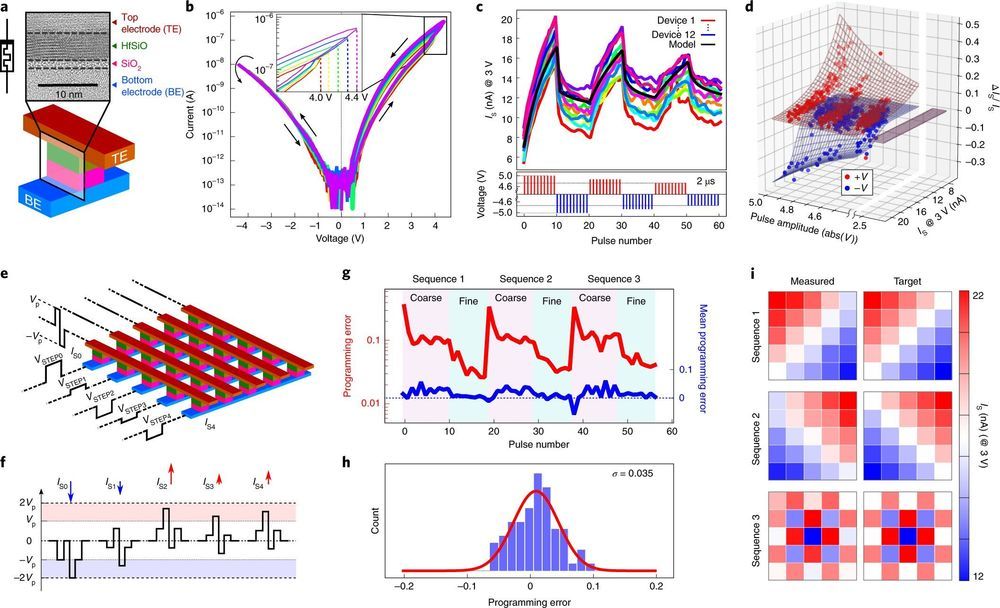Researchers at Toshiba Corporate R&D Center and Kioxia Corporation in Japan have recently carried out a study exploring the feasibility of using nonlinear ferroelectric tunnel junction (FTJ) memristors to perform low-power linear computations. Their paper, published in Nature Electronics, could inform the development of hardware that can efficiently run artificial intelligence (AI) applications, such as artificial neural networks.
“We all know that AI is slowly becoming an important part of many business operations and consumers’ lives,” Radu Berdan, one of the researchers who carried out the study, told TechXplore. “Our team’s long-term objective is to develop more efficient hardware in order to run these very data-intensive AI applications, especially neural networks. Using our expertise in novel memory development, we are targeting (among others) memristor-based in-memory computing, which can alleviate some of the efficiency constraints of traditional computing systems.”
Memristors are non-volatile electrical components used to enhance the memory of computer systems. These programmable resistors can be packed neatly into small but computationally powerful crossbar arrays that can be used to compute the core operations of artificial neural networks, acting as a memory and reducing their access to external data, thus ultimately enhancing their energy efficiency.
